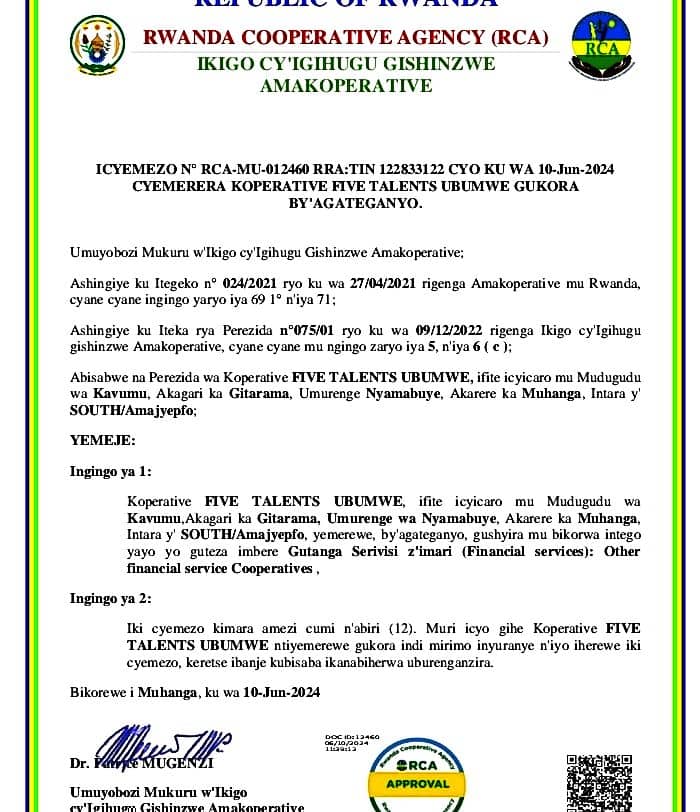
Since its official launch on the 23rd February 2024, the registration process of Five Talents Ubumwe (5T Ubumwe) as a saving and credit cooperative started. Thanks to the technical support provided by all actors in cooperative registration at sector, district and national level, the Cooperative got a provisional registration. This is a registration Nr RCA-MU-012460 (RRA: TIN 122833122) of the 10th June 2024 grating Five Talents Ubumwe to operate its Financial Services (Other financial service Cooperatives) for a twelve months period. After this, the process of application for the registration with the National Bank of Rwanda has promptly started.
Both RDIS and its founding members dioceses have encouraged people to group themselves in saving and credit association, which has prompted a saving group ministry in the church. After a long time of saving and credits groups ministry in the church, groups are still working in an informal way, where the security and safety of their money is not well ensured as they do not have any legal protection. Reports attest that there is no doubt a saving and credit culture in the church and in the country in general has standing roots, though the absence of legal recognition and failed dioceses’ initiatives to maintain the cohesion of saving and credit groups. A proposed long standing solution was either to link the groups to existing microfinance institutions or to form a church based one. Church leaders decided that these saving and credit scheme needs to be scaled up and formalized in a microfinance which will be professionally managed in accordance with the existing laws and regulations in the country, for the development of its shareholders.
Saving and credit groups have a very important role in the development of their members, as they learn a saving culture, and borrow money for their socio-economic needs. Report from dioceses shows that the saving and credits members get groups loans to buy land, construct or repair houses, paying children school fees and buying school materials for their children in either primary or secondary schools and technical vocational schools as well, making small income generating activities like starting shops, buying and reselling fruits and vegetables in local markets, and many more. In addition to this, the groups formed from church members demonstrated to be an evangelism tool because a number of people came back into the church through their groups or groups members’ testimonies. The groups rebuilt the socio cohesion of their members through the socio assistance provided by the group socio scheme during happy or sad moments (to cite some, when a group member is married or married a child, when there is a birth in a group member nuclear family, a death or a sickness).
Our hope and wishes are that the journey keeps on a smooth way to the formation of a microfinance institution.
